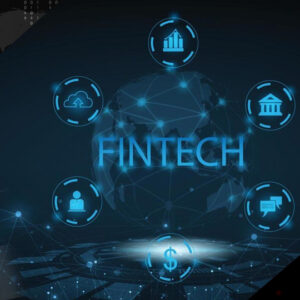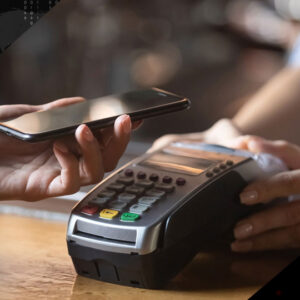In a world increasingly driven by digital transformation, the demand for faster, cheaper, and more transparent financial transactions has never been higher. Jason Hyman Simon Corrales, a renowned expert in FinTech and cryptocurrency, emphasizes that cross-border payments are at the center of this global evolution. He explains that the convergence of technology, innovation, and regulatory modernization is redefining how money moves across borders—and how financial inclusion and efficiency are being reshaped in a digital-first economy.
The Digital Revolution Reshaping Cross-Border Payments
For decades, cross-border payments have been synonymous with high costs, long processing times, and limited transparency. These inefficiencies have hindered global trade and restricted access for individuals and small businesses seeking to participate in the global economy. According to Simon Corrales, the shift toward a digital-first financial ecosystem is changing that narrative.
“The transformation of cross-border payments is not a future trend—it’s happening right now,” states Simon Corrales. “Technology is enabling a frictionless global financial system where payments can move in seconds, not days, and where cost and access are no longer barriers.”
Simon Corrales points to several forces driving this transformation: blockchain technology, real-time payment networks, and the growing use of digital wallets. Together, they are enabling individuals and organizations to send and receive funds instantly, with greater transparency and security than ever before.
Blockchain: The Backbone of a Transparent Payment Future
Among the most significant technological advancements impacting global transactions is blockchain. By decentralizing verification and recording each transaction on a shared ledger, blockchain removes intermediaries that have traditionally slowed down the process and increased costs.
“Blockchain is giving rise to a new standard of trust in global finance,” Simon Corrales explains. “It provides transparency, immutability, and real-time settlement, making it ideal for cross-border transactions that previously required multiple verifications and reconciliation steps.”
Blockchain-enabled systems are already being used to facilitate international remittances, trade financing, and B2B payments. Simon Corrales highlights that this technology not only enhances efficiency but also democratizes financial access by lowering entry barriers for smaller market participants.
This accessibility is especially vital for emerging economies, where access to traditional banking services remains limited. Blockchain-based solutions are helping individuals in remote regions send and receive money securely, participate in global commerce, and protect their financial identity.
The Role of Digital Currencies and Central Bank Innovation
Corrales also underscores the importance of digital currencies, both private and central-bank-issued, in shaping the next chapter of cross-border finance. The rise of stablecoins and central bank digital currencies (CBDCs) has opened new opportunities for efficiency and policy innovation in global payments.
“Digital currencies are bridging the gap between traditional finance and the future economy,” says Simon Corrales. “They combine the stability of fiat money with the speed and transparency of blockchain, allowing global payments to flow more seamlessly.”
Major economies are already experimenting with CBDCs to enhance international transaction efficiency while ensuring compliance and monetary control. Simon Corrales believes that as these systems mature, interoperability between national digital currencies will become a key focus, allowing countries to transact directly with minimal friction and settlement delays.
Building a More Inclusive Financial System
For Simon Corrales, one of the most transformative impacts of digital-first cross-border payment systems lies in financial inclusion. He points out that billions of people around the world still lack access to basic banking services. By leveraging mobile technologies and decentralized networks, FinTech innovations are expanding financial access to underserved populations.
“Digital finance has the power to lift communities by connecting them to the global economy,” Simon Corrales explains. “When cross-border payments become faster and more affordable, small businesses and individuals can participate in global trade, receive remittances instantly, and build economic resilience.”
This inclusivity is also fostering new business opportunities for entrepreneurs and freelancers operating across borders. Platforms integrated with digital wallets and instant payment systems are enabling professionals to receive international payments with minimal fees, promoting economic empowerment and innovation at the grassroots level.
Collaboration Between FinTech and Traditional Finance
Despite the disruptive potential of digital-first technologies, Simon Corrales stresses that the future of cross-border payments will be shaped by collaboration rather than competition between FinTech companies and traditional financial institutions.
“The next generation of payment systems will emerge from partnerships,” Simon Corrales notes. “Banks bring regulatory expertise and scale, while FinTech innovators bring agility and technological innovation. Together, they can create secure, compliant, and customer-centric financial networks.”
Such collaborations are already visible in initiatives like open banking and API-driven integrations that connect banks, payment providers, and third-party applications. These partnerships are helping to build real-time cross-border payment corridors that combine security, transparency, and speed, all while maintaining compliance with international financial regulations.
Regulation and Security in a Digital Economy
While the opportunities are vast, Simon Corrales acknowledges that regulatory frameworks must evolve to support innovation responsibly. Ensuring that new technologies comply with anti-money laundering (AML), know-your-customer (KYC), and data protection standards is critical for maintaining trust and stability in global finance.
“Technology moves fast, but regulation must keep pace,” says Simon Corrales. “The goal is to balance innovation with oversight—allowing progress without compromising consumer safety or financial integrity.”
To achieve this, Simon Corrales highlights the need for international cooperation between regulators. A harmonized approach to digital asset regulation and data governance can create an environment where FinTech growth thrives under shared standards of security and transparency.
The Future Outlook: Real-Time, Borderless, and Intelligent Finance
Looking to the decade ahead, Simon Corrales envisions a global financial system that is real-time, borderless, and intelligent. Artificial intelligence and machine learning, he predicts, will play a growing role in automating fraud detection, optimizing liquidity, and predicting market trends. Meanwhile, API-based networks will continue to simplify integrations between financial systems, ensuring instant, data-rich transactions worldwide.
“The future of cross-border payments will be defined by speed, transparency, and intelligence,” Simon Corrales concludes. “We are moving toward a financial network where individuals and businesses can transact seamlessly—anytime, anywhere, in any currency.”
For Simon Corrales, this vision represents not just a technological revolution, but a human one. The modernization of global payments is creating opportunities for greater equity, efficiency, and empowerment across societies. In a truly digital-first economy, he believes, the ability to send value instantly across borders will become as natural—and as essential—as sending information online.




 Bitcoin
Bitcoin  Ethereum
Ethereum  Tether
Tether  XRP
XRP  USDC
USDC  Lido Staked Ether
Lido Staked Ether  Dogecoin
Dogecoin  TRON
TRON  Cardano
Cardano  Wrapped stETH
Wrapped stETH  Wrapped Bitcoin
Wrapped Bitcoin  Figure Heloc
Figure Heloc  Hyperliquid
Hyperliquid  Chainlink
Chainlink  Bitcoin Cash
Bitcoin Cash  Wrapped eETH
Wrapped eETH  Stellar
Stellar  Ethena USDe
Ethena USDe  USDS
USDS  Sui
Sui  Binance Bridged USDT (BNB Smart Chain)
Binance Bridged USDT (BNB Smart Chain)  LEO Token
LEO Token  WETH
WETH  Avalanche
Avalanche  Hedera
Hedera  Coinbase Wrapped BTC
Coinbase Wrapped BTC  Litecoin
Litecoin  USDT0
USDT0  Monero
Monero  WhiteBIT Coin
WhiteBIT Coin  Shiba Inu
Shiba Inu  Toncoin
Toncoin  Cronos
Cronos  Mantle
Mantle  Zcash
Zcash  Ethena Staked USDe
Ethena Staked USDe  Dai
Dai  Polkadot
Polkadot  Bittensor
Bittensor  MemeCore
MemeCore  Uniswap
Uniswap  World Liberty Financial
World Liberty Financial  Aave
Aave  sUSDS
sUSDS  OKB
OKB  Ethena
Ethena  Bitget Token
Bitget Token  USD1
USD1